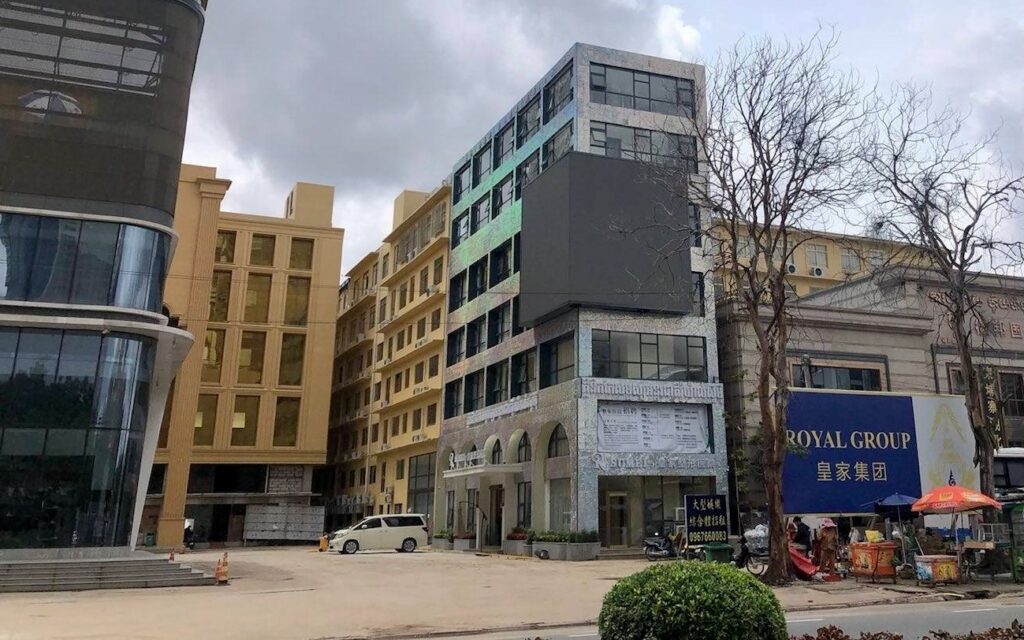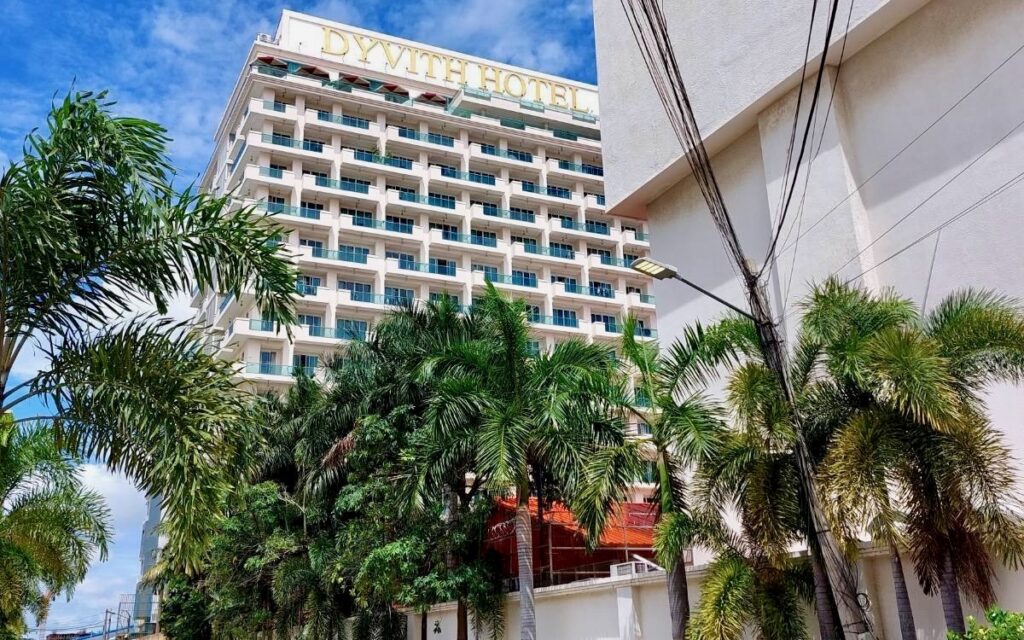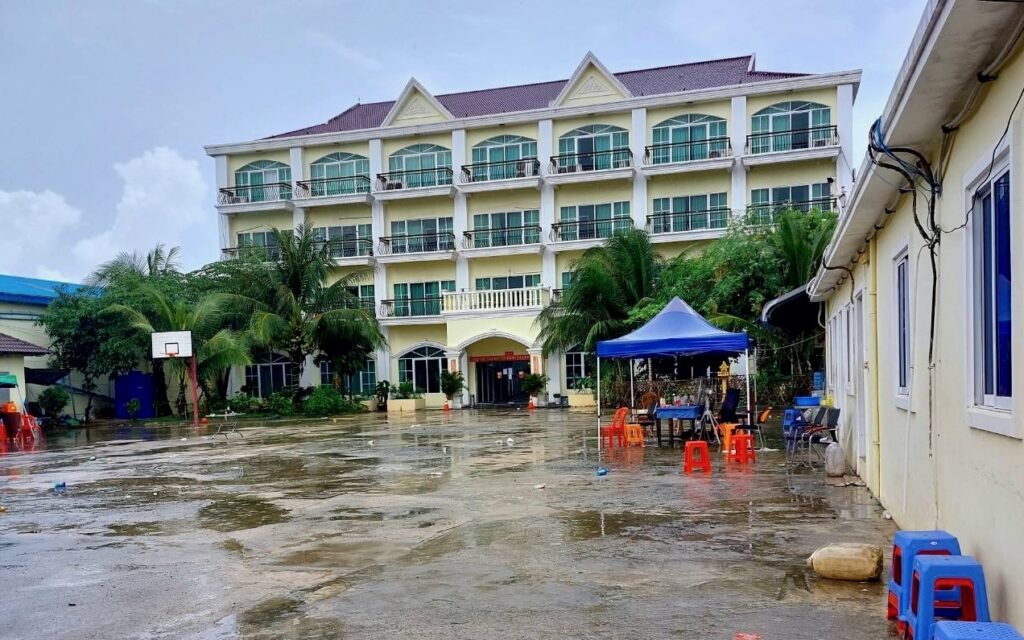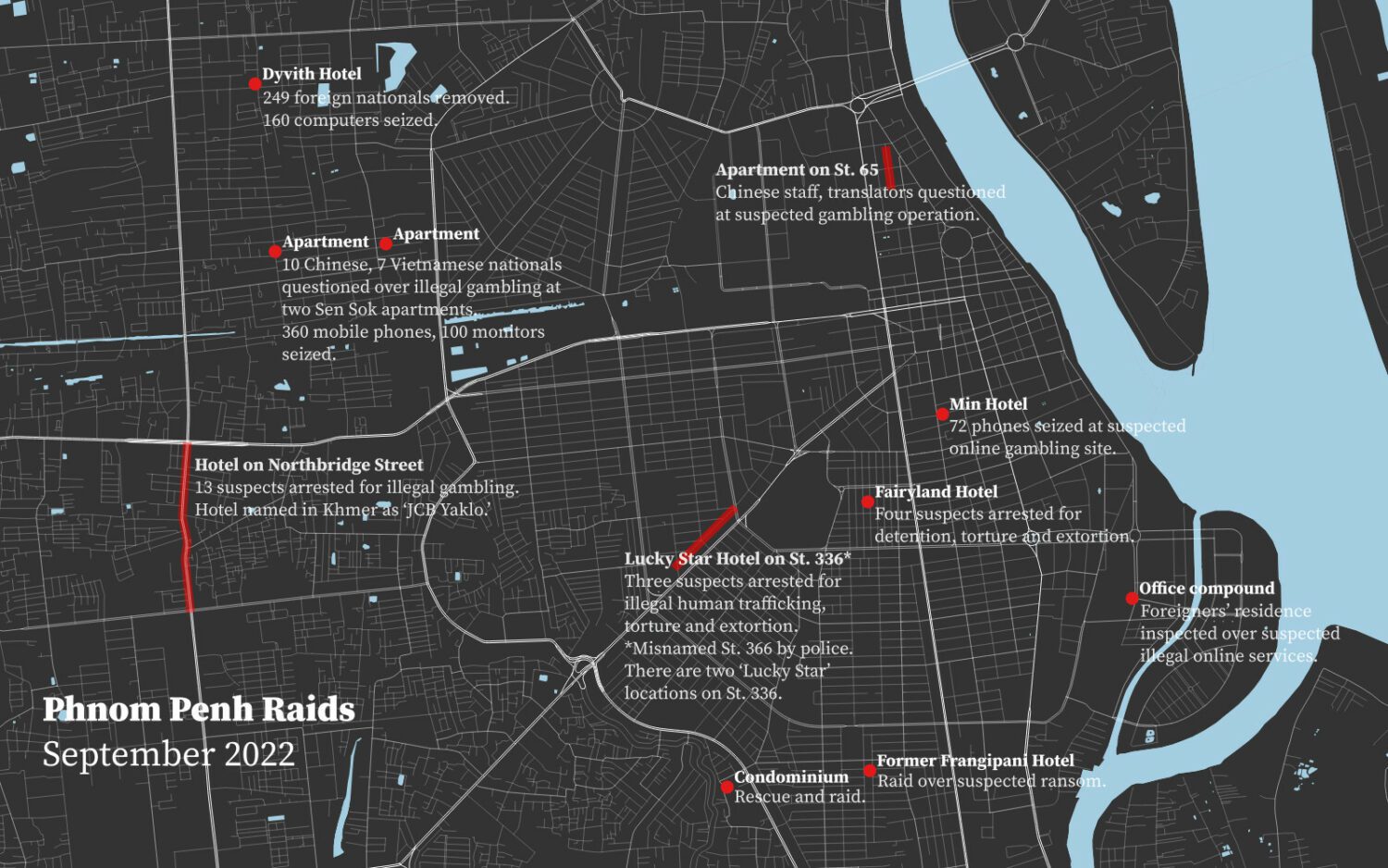Hundreds of foreign nationals have been removed from Phnom Penh compounds as police acknowledged detention, torture, extortion and human trafficking in several arrests.
The buildings are dotted across the inner city, from an office compound across the street from the Australian Embassy on National Assembly Blvd. to a hotel near Central Market, and come amid international pressure over major online scam operations sheltered in Cambodia.
Interior Minister Sar Kheng has urged action against human trafficking at those operations: Waves of foreign nationals have spoken out about being lured to the country with the promise of legitimate jobs only to find themselves in debt slavery and forced to work on romance and cryptocurrency scams. Thousands of people are believed to have worked at the scam syndicates.
The hub of the operations was Sihanoukville, often in vacated online casino premises, as well as border casino towns. But Phnom Penh was also rife with criminal activity, and police this month raided at least 11 suspected locations.
At Sen Sok’s Dyvith Hotel, 249 people — Bangladeshi, Cambodian, Chinese, Indonesian, Malaysian, Myanmar, Nepali, Taiwanese and Vietnamese — were removed and questioned over “illegal online gambling,” according to district police. The raid, on September 11, also seized 160 computers, and the compound is being kept under watch. At two other apartments in the district, 10 Chinese and seven Vietnamese nationals were questioned, and 360 mobile phones and 100 monitors confiscated on September 10 and 20.
A raid at Phsar Thmei 3’s Min Hotel found 72 phones in one room, as well as two computers in a second room but no people on September 10, according to the Daun Penh district administration.
A police squad arriving at a condominium in Srah Chak commune’s Street 65 on September 19 found the manager of the compound, Chinese staff and translators having already packed up their suspected illegal gambling equipment and cooperated with the authorities, Daun Penh district said. The manager was told to prohibit all kinds of illegal gambling and trafficking, and cooperate with authorities or face the law.
Chamkarmon district said a compound opposite the Australian Embassy was raided on September 19 for suspected involvement in “illegal online services.”



Phnom Penh Municipal Police, however, acknowledged detention, torture, extortion and human trafficking in arresting seven people at two sites: Lucky Star Hotel in Phsar Doeum Kor commune on September 20 and Fairyland Hotel in Prampi Makara on September 22.
Many of the buildings were previously known to rescuers who have been working for months to aid human trafficking victims.
Lu Xiangri, a Chinese rescuer, previously sought to release trafficking victims from one of the Sen Sok apartments. Vietnamese nationals have also previously been rescued from the compound opposite the Australian Embassy.
Boeng Tompun I commune chief Suos Sarin on Monday also acknowledged a raid at a condominium where VOD previously reported that a group of Indonesian nationals was forced to work online scams before being rescued. The group was interviewed after returning to Indonesia’s Batam island.
Police actions also continued outside Phnom Penh. In Sihanoukville, three raids from September 18-22 led to the release of at least 1,480 foreign nationals from Bangladesh, China, India, Indonesia, Laos, Malaysia, Myanmar, Russia, Taiwan, Thailand and Vietnam, according to provincial police. [Correction: This paragraph previously said 1,045 foreign nationals as not all categories detailed by authorities were included.]
Eight Cambodians were also arrested for alleged forced labor at the Galaxy World compound of three buildings and more than 200 rooms. Police found human trafficking, illegal currency trading, illegal labor conditions and online gambling. Workers without proper documentation were fined, the provincial police said.
Interior Minister Kheng ordered hundreds of foreign nationals sent home from another compound, Pao Yong Technology, and all businesses shuttered at a third, Jincai.
The Sihanoukville raids had last week created an eerie silence around the notorious scam complexes.
A Takhmao city hotel was also shut down after a raid on September 20 and “a large number” of Chinese nationals removed, according to the Kandal provincial administration.
More than 1,000 Vietnamese citizens who were tricked into working illegally in Cambodia had now been rescued, a Vietnamese Foreign Ministry spokeswoman said in Hanoi on September 22, according to Vietnam Plus.
A representative for the Global Anti-Scam Organization, which is a group of volunteers that has been involved in rescues from scam compounds, said Cambodian authorities had shown action, but it was unclear whether the leaders of the scam operations were thwarted. The spokesperson asked not to be named because of security concerns.
“They have tried, but I am not sure if the big bosses have been caught, and I think this is the most concerning portion,” the representative said. “It should be more transparent to the public, because we don’t think that the big bosses have been caught.”
Phnom Penh governor Khuong Sreng said he was too busy to comment on Tuesday.
Additional reporting by Keat Soriththeavy
Correction (September 29): An earlier version of this article misstated the total number of foreign nationals released in the three Sihanoukville raids.












